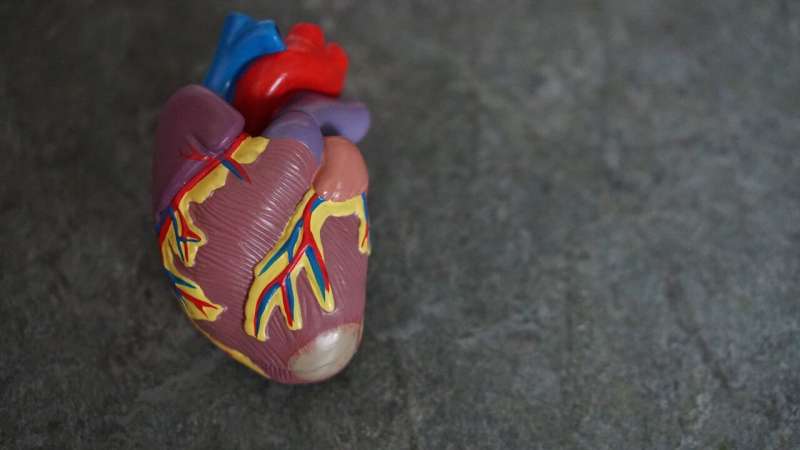Antiplatelet medication may have potential as a low-cost heart failure treatment


Sarpogrelate, an antiplatelet medication, has potential as a new heart failure therapy and, according to researchers, could potentially decrease health care costs associated with cardiovascular disease, according to preliminary animal research presented at the American Heart Association’s Basic Cardiovascular Sciences Scientific Sessions 2021.
Cardiac hypertrophy is the abnormal enlargement, or thickening, of the muscles of the heart and can lead to heart failure. One way that cardiac hypertrophy occurs is when cardiomyocytes, the cells that are responsible for contracting the heart muscle, become thicker than normal. The thickened cells become stiff, reducing the amount of blood pumped out to the body with each contraction of the heart (heartbeat). This cellular contraction eventually leads to the progression of heart failure. Cardiac hypertrophy is the most common form of genetic heart disease, and it is estimated that 1 in every 500 people are affected, yet a large percentage are undiagnosed. People with cardiac hypertrophy are at higher risk of blood clots, stroke, heart failure, cardiac arrest and other heart-related complications.
“Heart failure costs the United States billions each year in treatment, management, health care costs and missed days of work. Additionally, the cost of new drug development increases every year,” said Kana Shimizu, M.S., B.S.Pharm., is a Ph.D. student at the University of Shizuoka in Shizuoka, Japan. “We investigated whether existing, approved medicines could be repurposed as heart failure treatments at lower costs.”
Researchers screened a variety of compounds that suppress cardiomyocyte hypertrophy and identified the antiplatelet medication sarpogrelate as a potential candidate. Sarpogrelate is a serotonin receptor antagonist that has been found to cause vasodilation, or widening of the blood vessels, as well as reduce cell damage.
This study examined the effects of sarpogrelate on cardiomyocyte hypertrophy and the development of heart failure in mice. First, cultured cardiomyocyte cells were treated with 1 microgram, or 1 μM, of sarpogrelate and then stimulated with various hypertrophic agents to induce cell growth. The sarpogrelate significantly suppressed cardiomyocyte hypertrophy induced by each stimulus.
Mice then underwent a transverse aortic constriction (TAC), a procedure that induces cardiac hypertrophy. One day after the operation, the mice were randomly divided into three groups: either an oral dose of sarpogrelate at 1 mg/kg or 5 mg/kg daily for eight weeks, or the control group that did not receive sarpogrelate.
At the end of the eight-week study period, the mice who received 5 mg/kg of sarpogrelate daily were significantly less likely to develop heart failure after the TAC procedure. Echocardiographic analysis showed that the higher dose of sarpogrelate suppressed a TAC-induced increase in ventricular wall thickness and other measures of cardiac hypertrophy, such as the ratio of heart weight to body weight.
Source: Read Full Article